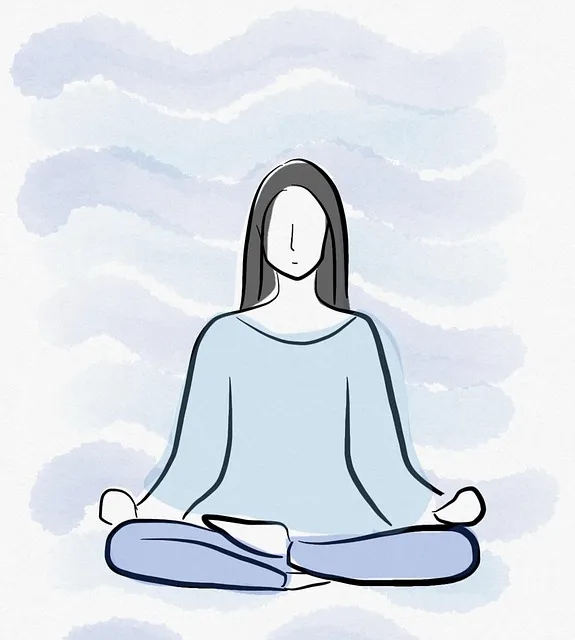Kaiser Permanente's mental health services in Littleton prioritize cultural sensitivity training for healthcare providers to better serve diverse patients. This approach builds trust, understands unique cultural contexts of mental health expressions, and improves patient outcomes with tailored support. Culturally sensitive practices enhance access to inclusive care, overcome barriers to treatment, and lead to better mental health outcomes, as demonstrated by Kaiser Permanente's dedicated facility in Littleton.
In an increasingly diverse society, cultural sensitivity in mental healthcare is paramount. This article explores the critical role of understanding cultural diversity in improving patient outcomes, especially within the context of organizations like Kaiser Permanente in Littleton. We delve into the impact of cultural sensitivity, navigate ethical challenges in cross-cultural practice, and highlight best practices that foster competent care. By implementing these strategies, mental health providers can better serve their communities, ensuring inclusive and effective treatment for all.
- Understanding Cultural Diversity in Mental Healthcare
- The Impact of Cultural Sensitivity on Patient Outcomes
- Navigating Ethical Challenges in Cross-Cultural Practice
- Best Practices for Culturally Competent Care at Kaiser Permanente
Understanding Cultural Diversity in Mental Healthcare

In the realm of mental healthcare, recognizing and appreciating cultural diversity is no longer a consideration but a necessity. With communities becoming increasingly multifaceted, healthcare providers must be equipped to cater to individuals from various ethnic, racial, and socio-cultural backgrounds. This understanding transcends mere knowledge; it involves developing cultural competency among healthcare providers, such as those affiliated with the Kaiser Permanente mental health number Littleton. Such training equips them to deliver sensitive, effective care tailored to each patient’s unique needs and experiences.
The integration of cultural sensitivity in mental healthcare practice is crucial for fostering trust between patients and providers. It enables the exploration of cultural contexts that influence mental health expressions and coping strategies. For instance, Public Awareness Campaigns Development can play a pivotal role in educating both patients and healthcare providers about diverse cultural responses to mental illness. Moreover, by promoting Cultural Competency Training for healthcare providers, institutions like Kaiser Permanente can ensure their staff are adept at offering culturally sensitive support, thereby enhancing patient outcomes and satisfaction.
The Impact of Cultural Sensitivity on Patient Outcomes

Cultural sensitivity plays a pivotal role in shaping positive patient outcomes within mental healthcare practices. By embracing and implementing this approach, providers can create an environment that resonates with individuals from diverse backgrounds, fostering trust and encouraging open communication. This is particularly relevant for organizations like Kaiser Permanente, with its widespread mental health services, including the dedicated facility in Littleton, Colorado.
When culturally sensitive practices are adopted, patients often experience improved access to care tailored to their unique needs. It enables healthcare professionals to understand and address cultural barriers to treatment, ensuring that coping skills development and stress management workshops, such as mindfulness meditation programs, are inclusive and effective. This personalized approach can significantly enhance patient satisfaction and adherence to treatment plans, ultimately contributing to better mental health outcomes.
Navigating Ethical Challenges in Cross-Cultural Practice

In the realm of mental healthcare, cultural sensitivity is paramount. When providing services to diverse communities, such as those in the Kaiser Permanente mental health number Littleton area, professionals must navigate complex ethical challenges rooted in cross-cultural practice. Understanding and respecting cultural differences in beliefs, values, and expressions of distress are essential for building trust and delivering effective care. For instance, what’s considered normal communication in one culture might be perceived as disrespectful in another, requiring practitioners to adapt their approaches while maintaining professional integrity.
The ethical maze becomes even more intricate when addressing sensitive issues like mood management or confidence-boosting strategies within these cultural contexts. Community outreach program implementation plays a crucial role here. By integrating cultural competency into outreach initiatives, mental health services can become more inclusive and accessible. This involves learning about the specific challenges and strengths within different communities, ensuring that interventions are not only culturally appropriate but also tailored to address unique needs. Such approaches foster deeper connections, enhance patient outcomes, and promote equitable mental healthcare practices.
Best Practices for Culturally Competent Care at Kaiser Permanente

Kaiser Permanente, known for its comprehensive healthcare services, emphasizes culturally competent care in its mental health practices. This approach is especially relevant when serving diverse communities, including those in Littleton, where various cultural backgrounds and experiences exist. Best practices involve educating healthcare providers on cultural sensitivity, ensuring they understand the impact of culture on mental health experiences and treatments. By integrating this knowledge, mental health professionals at Kaiser Permanente can create safe spaces that honor individual cultural identities.
One effective strategy is implementing Emotional Regulation techniques tailored to different cultures, ensuring these methods are accessible and meaningful to patients from various backgrounds. Additionally, Mental Illness Stigma Reduction Efforts play a pivotal role in fostering trust and encouraging open dialogue. Social Skills Training, another valuable tool, can help individuals navigate cultural nuances and improve their overall well-being, contributing to successful treatment outcomes.
In light of the diverse patient population, cultural sensitivity in mental healthcare is no longer an option but a necessity. As demonstrated by Kaiser Permanente’s commitment to culturally competent care in their Littleton location, understanding and respecting cultural diversity can significantly improve patient outcomes. By navigating ethical challenges with empathy and adopting best practices, mental health professionals can provide more effective treatment, fostering better connections between caregivers and patients from various backgrounds. This approach ensures that everyone receives the compassionate, tailored support they need to navigate their mental health journey.






